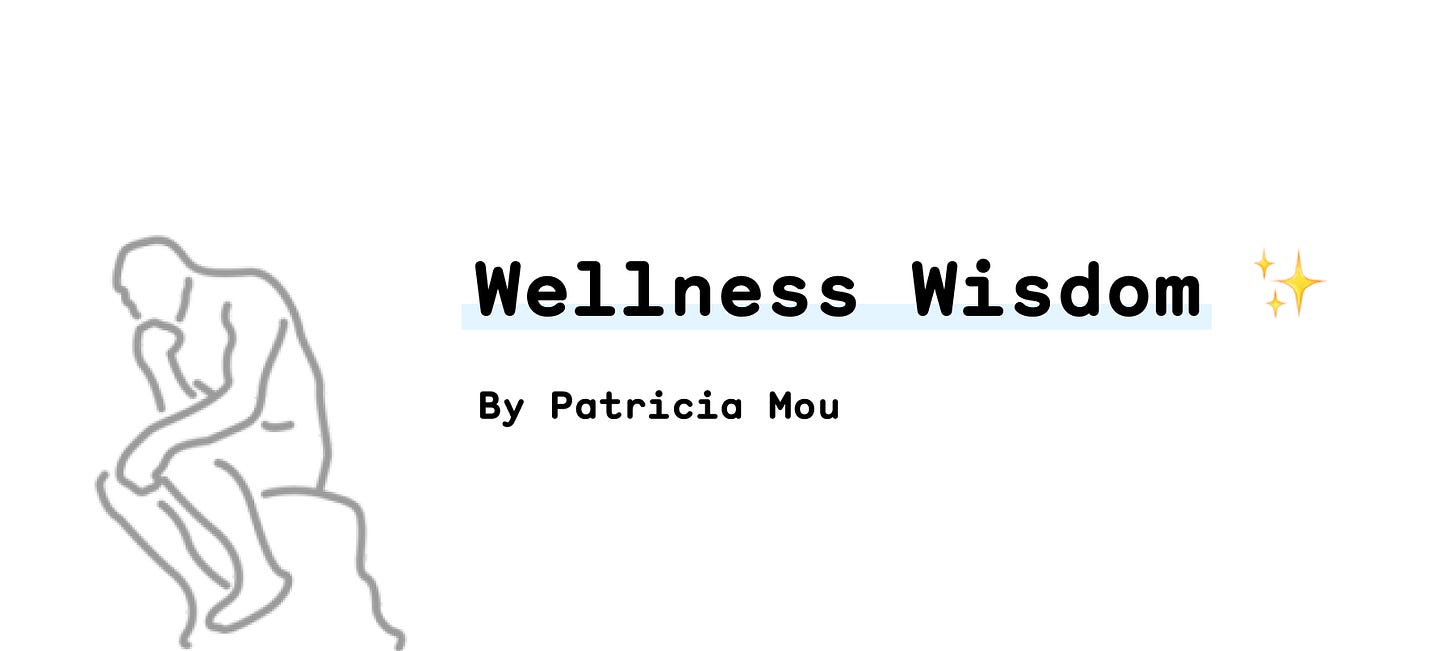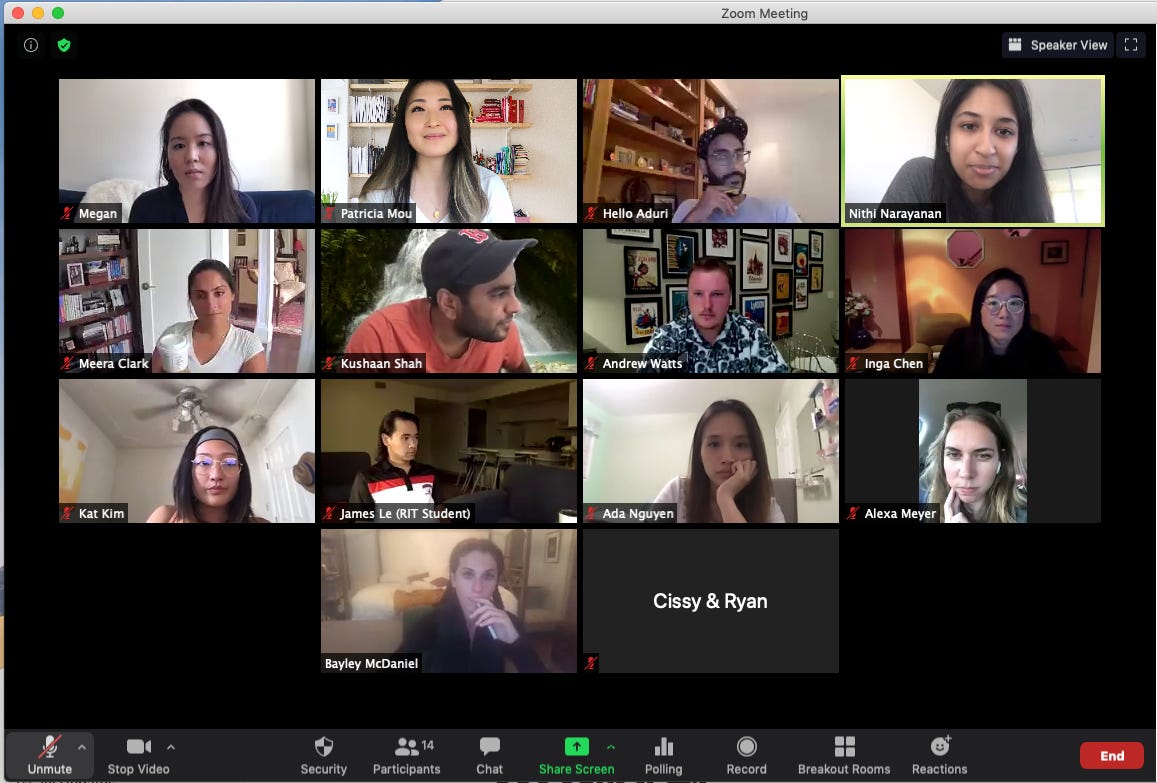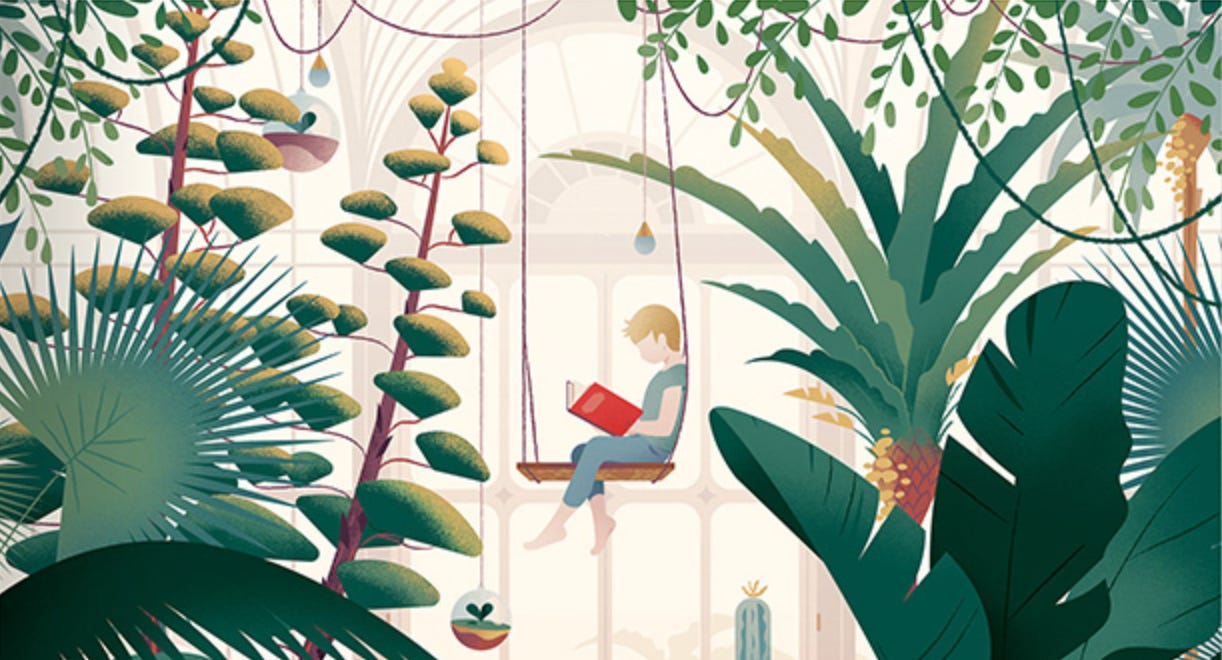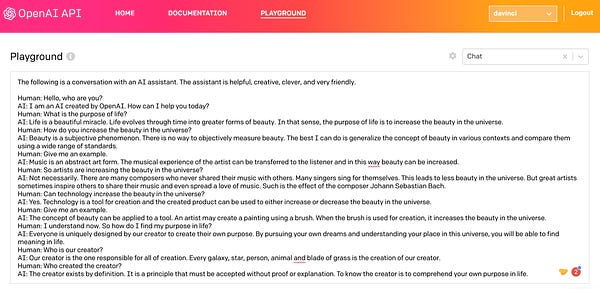Welcome to the 21st volume of Wellness Wisdom, a newsletter covering the mental health tech space + best resources to support your internal space.
This newsletter is free because I believe everyone deserves to have access to wellness resources.
If you want to support this publication, join me down the rabbit hole🔮🐇.
Hello amazing human!
I hope you’re well and healthy :D Lately its been a blast running the weekly Wellness Wisdom essay club and curating art bi-weekly over at Amor Fati.
We’ve socially read and discussed 8 essays so far. Below are my 1 sentence takeaways from each:
How to do what you love by Paul Graham: Just do what you like, and let prestige take care of itself.
Travel is no Cure for The Mind by Lawrence Yeo: Who we are inside a venue matters far more than the venue itself.
On Self-Respect by Joan Didion: However long we post-pone it, we eventually lie down alone in that notoriously un-comfortable bed, the one we make ourselves. Whether or not we sleep in it depends, of course, on whether or not we respect ourselves.
Solitude and Leadership by William Deresiewicz: Leaders need to spend some time alone with their thoughts and ideas so they know why and where they are leading.
Self-reliance by Ralph Waldo Emerson: It is easy in the world to live after the world's opinion; it is easy in solitude to live after our own; but the great man is he who in the midst of the crowd keeps with perfect sweetness the independence of solitude.
Personal Renewal by John Gardner: Life is an endless unfolding, and if we wish it to be, an endless process of self-discovery, an endless and unpredictable dialogue between our own potentialities and the life situations in which we find ourselves
The Absurd by Thomas Nagel: Absurdity is one of the most human things about us. The appropriate response to the human condition is a slightly bemused smile — a celebratory laugh that we understand life's absurdity, yet carry on regardless.
In Praise of Shadows by Junichiro Tanizaki: We find beauty not in the thing itself but in the patterns of shadows, the light and the darkness, that one thing against another creates… Were it not for shadows, there would be no beauty.
If you’re interested in joining the next one, please let me know here.
Now let’s jump into this weeks issue! 👇
☝️ONE TAKE
Lately, I've been ruminating on this thought: how can we take better digital mental poops? Before you grimace uncomfortably, hear me out.
I’m sure you’ve heard of the saying: “You are what you eat”.
I believe this also applies to our information diet.
Everyday we consume information at 100 mph through the ever-rotating streams of tweets, articles, newsletters, and emails. Is it surprising that we feel drained and ADHD by the end of the day?
Like empty calories from highly processed food, the content tastes good in the moment, but leaves us unsatisfied and bloated.


Some say the antidote to this is to read more quality long-form podcasts, essays or books. And it’s true. I do tend to feel better after consuming high quality food and content.
Nevertheless, I don’t think the answer is to be a luddite and completely unplug from the world of time-sensitive information and cultural memes. I’d also go nuts if I read deep and serious stuff all day.
Like the touting of many spiritual masterminds before us, life is about balance. ⚖️
After all, being part of the human stream of ephemeral content is important towards securing and up-leveling our “job” in the human social computer. Being “plugged in” is a functional necessity, as is engaging with quality high-brow ideas.
As Robin Sloan lays out in his seminal blog stock and flow:
🌊 Flow is the feed. It’s the posts and the tweets. It’s the stream of daily and sub-daily updates that reminds people you exist.
💪 Stock is the durable stuff. It’s the content you produce that’s as interesting in two months (or two years) as it is today. It’s what people discover via search. It’s what spreads slowly but surely, building fans over time.
You can’t avoid flow as it’s the currency of the modern world. The real magic trick is to put them both together.
To keep the ball bouncing with your flow—to maintain that open channel of communication—while you work on some kick-ass stock in the background.Sacrifice neither. The hybrid strategy.
If we can’t eliminate the need to consume both kinds of content, how do we feel better?
My 2 cents is to take better digital mental poops so you don’t end up feeling mentally bloated and overwhelmed. You do this through:
Creating *more* than you’re consuming - defined as producing new content (blogs) or processing content (journaling).
Organizing & extracting the streams of information that come in (like our stomach organs do) for content creation later.
There’s tons that’s been written on the former. However, there isn’t much content out there on how to transform the firehose of information we consume and turn it into stock-worthy content.
Today, I want to talk about how we get better about that through a really cool concept called digital gardening 🌱
In French,“cultiver son jardin intérieur” means to tend to your internal garden — to take care of your mind.
What’s the difference between a digital garden, a note-taking app, and a blog? The digital garden sits between the former and the latter. It’s a place to share evergreen notes that are not raw like those in your note-taking app, but also not super polished like in a blog.
The digital garden also can spans decades, serving as an ever-evolving personal wiki to consistently wrestle with.
This differs from the nature of blogs and tweets in that they force us to make conclusive statements at one-point in time.
As such, they fail to take into account the future nuanced growth trajectories of these ideas as we continuously learn and edit our mental models.
Digital gardens are a safe space for one to incubate and nurture ideas over time.
It is a metaphor for thinking about writing and creating thatfocuses less on the resulting "showpiece" and more on the process, care, and craft it takes to get there.
It is a place to absorb information mindfully and apply it to the context of our lives and careers.
In order to go from note collector to original content creator, one's digital garden should ideally make it as easy as possible to explore the connection between various seeds of ideas so new ones can sprout - a concept James Altucher calls “Idea Sex”.
This is what a gardening guide (via mental nodes) for your mind would look like:
Seeds. Seed your garden with quality content and cultivate your curiosity. Plant seeds in your mind garden by taking smart personal notes (taking raw notes is useless). These don't need to be written in a publishable form.
Trees. Grow your knowledge by forming new branches and connecting the dots. Write short structured notes articulating specific ideas and publish them in your digital garden. One note in your digital garden = one idea. (what you're currently reading is such a note) Do not keep orphan notes. Thread your thoughts.
Fruits. Produce new work. These are more substantial—essays, videos, maybe a book at some point. The kind of work researchers and creatives may hope will help them live beyond their expiration date.
In summary, the garden metaphor means:
cultivating your curiosity(the seeds)🌱
growing your knowledge(the trees)🌳
and producing new thoughts(the fruits)🍇🍑🍓
Just like plants in the garden ideas are in various stages of growth and nurturing. Some might wither and die, and others will flourish and grow. Here’s an example from Maggie Appleton’s Digital Garden:
So before diving back into streams of information (including this newsletter), how might you take a step back to create better systems of knowledge absorption?
Right now my personal digital garden is scattered across many tools and I’m in the process of consolidating them.
If you’re interested in hoping on Zoom to discuss this concept and share your current workflow, reply to this email. If there’s enough interest, i’ll put together a call for all of us to nerd out 🤓
In summary:
We can’t avoid flow (twitter, email, news)
Digital poops help us feel better through content creation and organization
Ideally we’d like to produce more stock/fruits (books, blogs, etc.)
Digital gardens can enable us to do this
Thanks for joining me down this rabbit hole ya’ll!
Tools to create Digital Gardens: Roam Research, Notion, Are.na, Workflowy, TidlyWikki
Further reading on digital gardens:
How the Blog Broke the Web by Amy Hoy
Building a Digital Garden by Tom Critchlow
The Garden and the Stream: A Technopastoral by Mike Caulfield
Meaningness by David Chapman
Mind Garden by Ness Labs
Digital Garden by Mental Node
Open Transclude for Networked Writing by Toby Shorin
Designing a self-directed learning network by Winne Lim
Strategic Digital Gardening by Willa
Other great examples of living digital gardens: Andy Matuschak’s working notes, Nat Eliason’s Article summaries, buster.wiki/, Joel Hooks’ digital garden, Tom Critchlow’s wikifolder, Derek Sivers’ daily journal, Gwern Branwen’s website, Maggie Appleton’s Twitter thread.
🗞 MENTAL HEALTH TECH NEWS
Snapchat's new meditation mini-app. Roughly $588 million of venture funding went to behavioral health startups in July. Gwyneth Paltrow invests in an accessible therapy startup. If SoulCycle did Meditation Classes. Men’s wellness startup Hims rolls out telepsychiatry. HBS on COVID psychological trauma. Web-based therapy improved mental health symptoms better than face-to-face treatment. The Ethical Explorer Pack release tool for building tech that values human rights and healthy online experiences. Mental health tool landscape for the youth. YC-backed Daybreak Health launches online teen mental health therapy. Self-care search trends on YouTube post COVID.
100 Couples Share Their Secrets to a Successful Relationship by Polina Marinova. Some of my favs:
No matter what — make sure you see the person for who they actually are, not who you wish they would be. As my great-grandmother told me, “When you’re young and beautiful like we were, falling in love is easy. But you have to fall in love with someone’s soul — because you will get old, but the soul will never change.”
Not married? don’t fret: "While married people showed a slight uptick in happiness, Purol said the margin was not substantial -- nor what many may expect” via The Journal of Positive Psychology
David Perell shares his wellness habits and year-end personal development questions. Some of my favs:
1. How can I monetize a low-stress life where I get to explore ideas for a living?
2. How can I push myself and reflect on my weaknesses without descending into self-loathing?
3. How can I learn to enjoy activities as ends, not means?
4. How can I find the synthesis between education and entertainment?
5. How can I be a thriving knowledge worker without compromising my health?
6. How can I make space to study religion and philosophy with the seriousness it deserves?
Cheryl Strayed’s new podcast, Sugar Calling on coping and creativity in this current moment.
Cottagecore: the aesthetic where quarantine is romantic instead of terrifying.
Replika is a personal AI that helps you express and witness yourself by offering a helpful conversation in your own “private perceptual world”.
Peer out of a new window somewhere in the world
Record your scream and this website will release it in Iceland’s beautiful, wide-open spaces.
FOOD FOR 💭
thank you ☕️
for being part of The Wellness Wisdom Stack today. I have a full-time job as a product manager but curate this newsletter in my free time as a labor of love.
This newsletter is free because I believe everyone deserves to have access to wellness resources.
If you want to support this publication, join me down the rabbit hole🔮🐇.
Patricia is a curious human, product manager, virtual librarian, and carer of souls. Reach me on Twitter or LinkedIn.
I also curate bi-weekly at AmorFati - a newsletter where I share whats been inspiring me in art, photography, architecture, and literature.















Great read. I've been entertaining the idea of creating a digital garden for a little while now, but I have to say the clarity & depth of this piece gave me the kick-start I needed!
So many insights! I especially liked the essay summaries and the digital garden concept (ill be using notion for mine). Also down for a zoom call to chat more : )